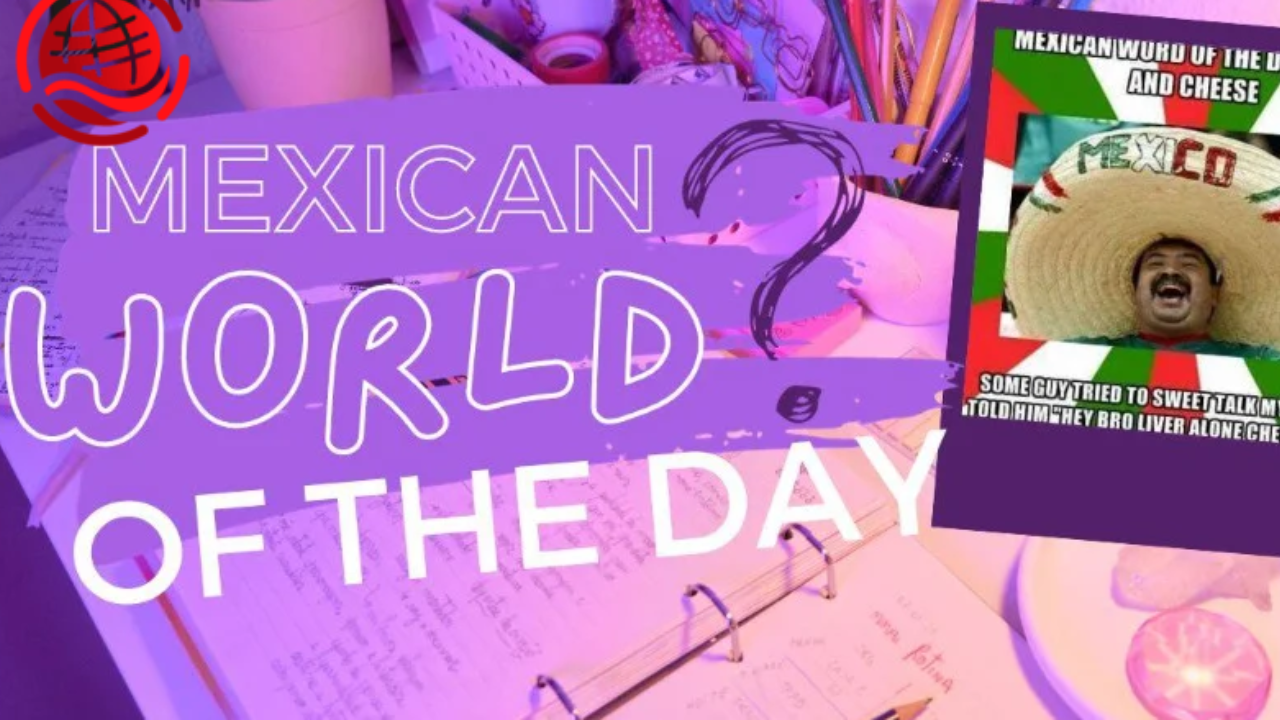Introduction to Mexican Spanish
With its rich tapestry of indigenous, Spanish, and modern influences, Mexican Spanish presents a unique linguistic experience. The term “Mexican word of the day” has gained popularity and is often used humorously in social media and cultural exchanges. However, beyond the surface-level amusement, it represents an opportunity to explore the depths of the Mexican language and culture. This exploration enriches understanding and fosters a deeper appreciation of the nuances that make Mexican Spanish distinct.
Historical Influences on Mexican Spanish
The evolution of Mexican Spanish is a fascinating journey through history. Initially influenced by the Castilian Spanish of the colonial conquerors, it rapidly incorporated elements from indigenous languages such as Nahuatl, Maya, and Zapotec. This amalgamation created a familiar and distinctly unique variant of Spanish. Understanding this historical backdrop is crucial for appreciating the nuances in Mexican Spanish, including idiomatic expressions and colloquialisms often encapsulated in the “Mexican word of the day.”
Regional Variations and Expressions
Mexico’s vast geography, encompassing deserts, mountains, and coastlines, has fostered regional linguistic variations. These variations are not just in accent but also in vocabulary and expressions. For example, words like “chido” (excellent) and “güey” (dude) are more prevalent in urban areas, while rural regions might use more traditional or indigenous terminology. The “Mexican word of the day” often highlights these regional differences, offering insight into how geography and culture shape language.
The Role of Slang and Humor
Slang plays a significant role in Mexican Spanish, often reflecting societal trends and attitudes. Humor is a vital component of Mexican culture, with a penchant for wordplay and double entendres. The concept of “allures” (witty double-meaning phrases) is a perfect example. The “Mexican word of the day” frequently incorporates these aspects, using playful language to convey deeper cultural meanings. This makes learning the language enjoyable and provides a window into the Mexican psyche.
The Impact of Popular Culture
Popular culture in Mexico, including music, television, and cinema, significantly influenced the evolution of Mexican Spanish. Artists and entertainers often introduce new phrases and expressions that quickly become part of everyday language. The “Mexican word of the day” sometimes originates from this sphere, showcasing how popular culture can drive language evolution. Understanding these references can offer a deeper appreciation of contemporary Mexican society and its cultural expressions.
Educational and Practical Applications
In educational settings, the concept of “Mexican word of the day” can be a powerful tool for language learning. It breaks the monotony of traditional language education, making learning more engaging and relevant. It’s a fun and effective way for non-native speakers to understand colloquialisms and cultural nuances. In practical terms, this knowledge can enhance communication skills, making interactions more authentic and meaningful for personal or professional purposes.
Social Media and Global Reach
The rise of social media has played a significant role in popularizing the “Mexican word of the day.” Platforms like Twitter, Instagram, and Facebook have allowed these phrases to gain international recognition, often accompanied by humorous memes or illustrations. This global reach demonstrates the universal appeal of language as a tool for connection and cultural exchange. It highlights how a simple phrase can transcend borders, fostering a sense of global community.
Conclusion
In conclusion, the “Mexican word of the day” is more than just a humorous phrase; it’s a gateway into the rich and diverse world of Mexican language and culture. By exploring its historical roots, regional variations, slang, and impact on popular culture, one understands its significance comprehensively. This knowledge enhances language skills and promotes cultural empathy and connection. As the world becomes increasingly interconnected, embracing such cultural nuances becomes essential for fostering global understanding and harmony.



